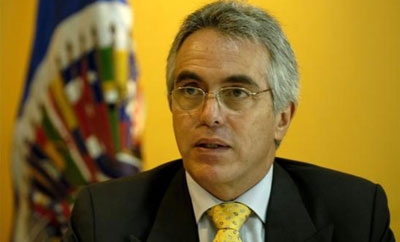The President of the Inter-American Court of Human Rights has endorsed the legality of the domestic deployment of the military to fight crime, raising the question of whether this will affect claims made against human rights abuses committed during such deployments.
Speaking following the inauguration of the 48th Extraordinary Session of the Inter-American Court of Human Rights (CIDH), Peruvian judge Diego Garcia-Sayan said that in certain security situations it is valid to use the military to maintain order. According to Garcia-Sayan, Latin American governments often face organized crime groups that can match or even exceed their powers and capacity for territorial control, reported Informador.
According to the judge, the threat to the people and institutional stability posed by organized crime is “one of the greatest challenges” posed to governments throughout the region, reported El Universal. He also stated that in such extraordinary circumstance the acceptability of deploying the military to combat domestic crime is established in international law.
InSight Crime Analysis
The judge’s comments come at a time when the militarization of law enforcement is high on the agenda in Latin America. While Garcia-Sayan was answering questions on Mexico, he made it clear that his words were intended for the entire region.
The military was a central element in former Mexican President Felipe Calderon’s war on drug cartels. While that “war” has been scaled down in the public discourse by current president Enrique Peña Nieto, soldiers remain engaged in citizen security and the government continues with its plans to inaugurate a militarized gendarmerie force.
Elsewhere in the region the military has been deployed in several other countries including Honduras, and the Dominican Republic, while other countries, most notably Brazil, use military police forces.
One of the strongest arguments against the use of soldiers is their failure to uphold human rights standards when employing military rather than policing tactics to combat crime. Mexican military personnel have been consistently criticized for such abuses, while in Honduras the blurring of civil and military lines has also been the subject of a legal challenge.
Although Garcia-Sayan’s words about organized crime in Latin America ring true, his endorsement of the use of the army for citizen security may affect claims made against military human rights abuses before the CIDH, which is often the only serious option available to citizens as military personnel tend to be tried in closed military courts.

